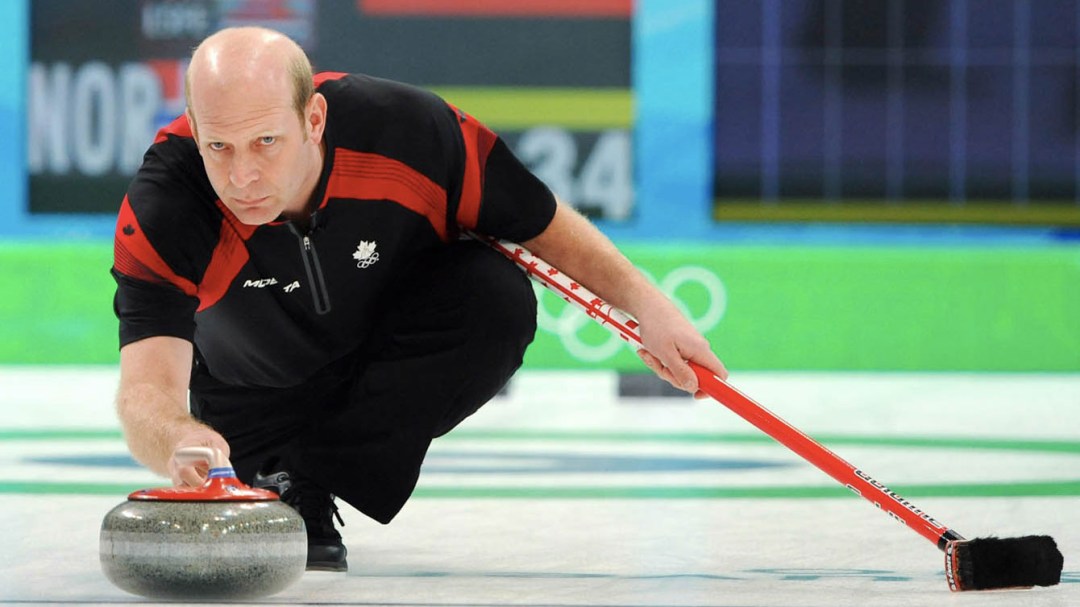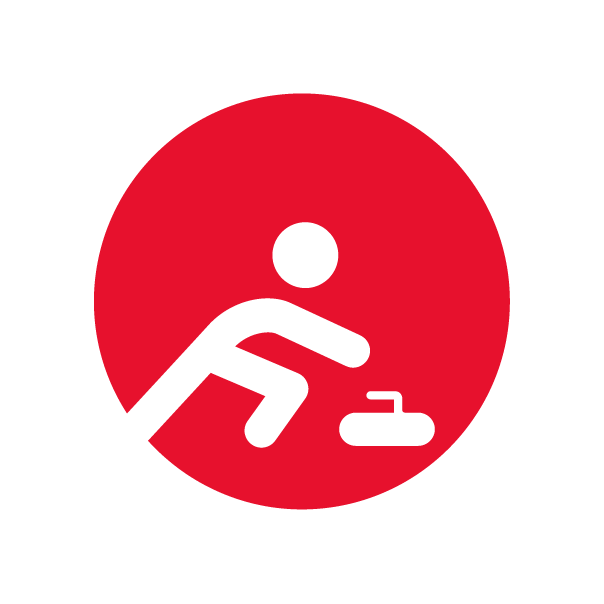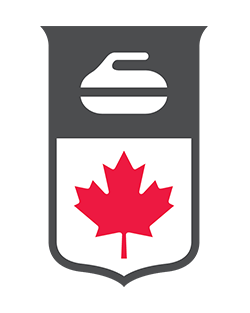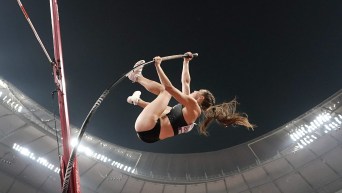Curling
Team Canada Medal Count
Sport Overview
Curling at Beijing 2022
Venue: National Aquatics Centre (Ice Cube)
Competition Dates: February 2-20 (Days -2-16)
Events: 3 (1 men, 1 women, 1 mixed)
Curling is one of the most strategic sports at the Olympic Winter Games. Playing on a rectangle sheet of ice, the objective is to get your team’s granite stones closer to the centre of a four-ringed target (known as the house) than those of your opposing team.
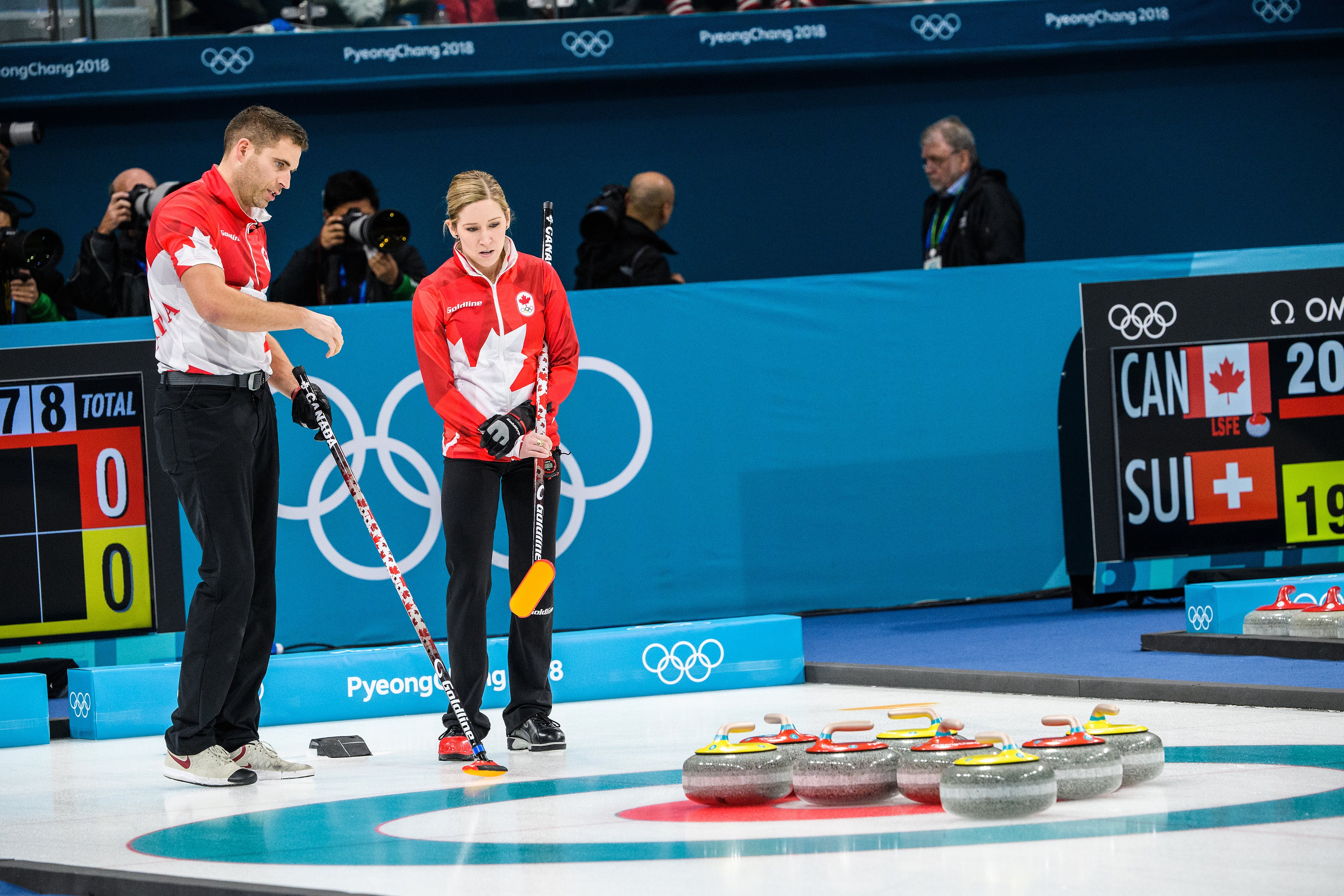
The traditional men’s and women’s tournaments feature teams of four curlers. These matches last 10 ends, with each team throwing eight stones per end, alternating with their counterpart on the other team after each stone. The order of throwing is based on the players’ positions, usually leads first, then seconds, then thirds (also known as vice-skips) and finally skips. Two players help sweep their team’s thrown stones towards the house.
Only one team can score points in any one end, with one point awarded for every stone that is closer to the button (centre of the house) than any stone belonging to the other team. The team that scores will deliver the first stone of the next end. If an end is blanked (no team scores), then the team that had last stone in that end retains last stone in the next end.
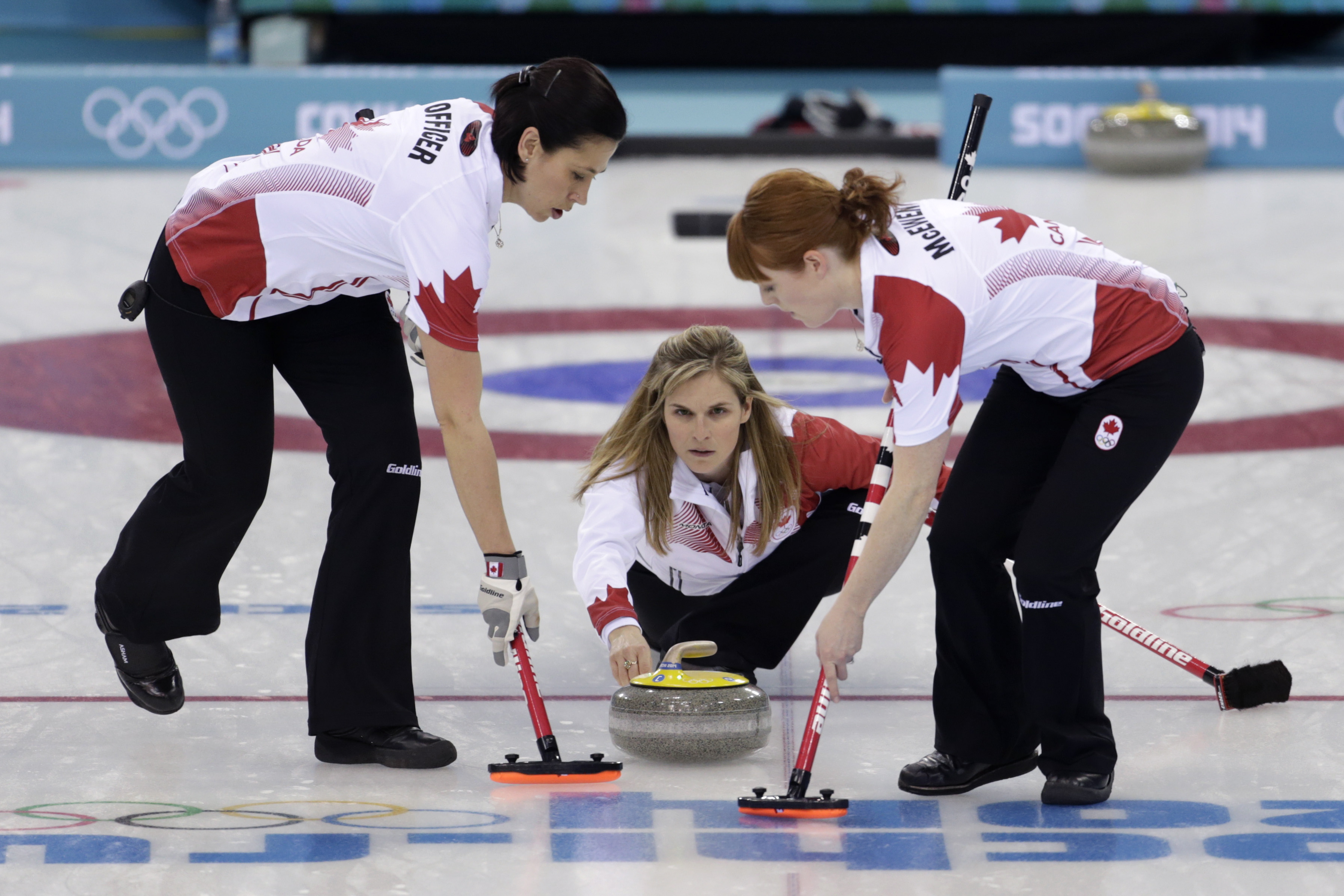
The Games employ the four-rock, free guard zone rule, meaning that the first four stones of an end cannot be removed from play until after the fourth stone has been delivered. Each team has 38 minutes of thinking time to strategize.
Mixed doubles made its Olympic debut at PyeongChang 2018. Each team of two – one man and one woman – plays with six stones, with one stone per team positioned before the start of play in each end. The first player on a team delivers the first and last stones while the second player delivers the second, third, and fourth stones. No stone in play can be removed until the fourth stone is delivered in an end. Both team members are allowed to sweep and can swap throwing positions from end to end. Each game is divided into eight ends with 22 minutes of thinking time per team.
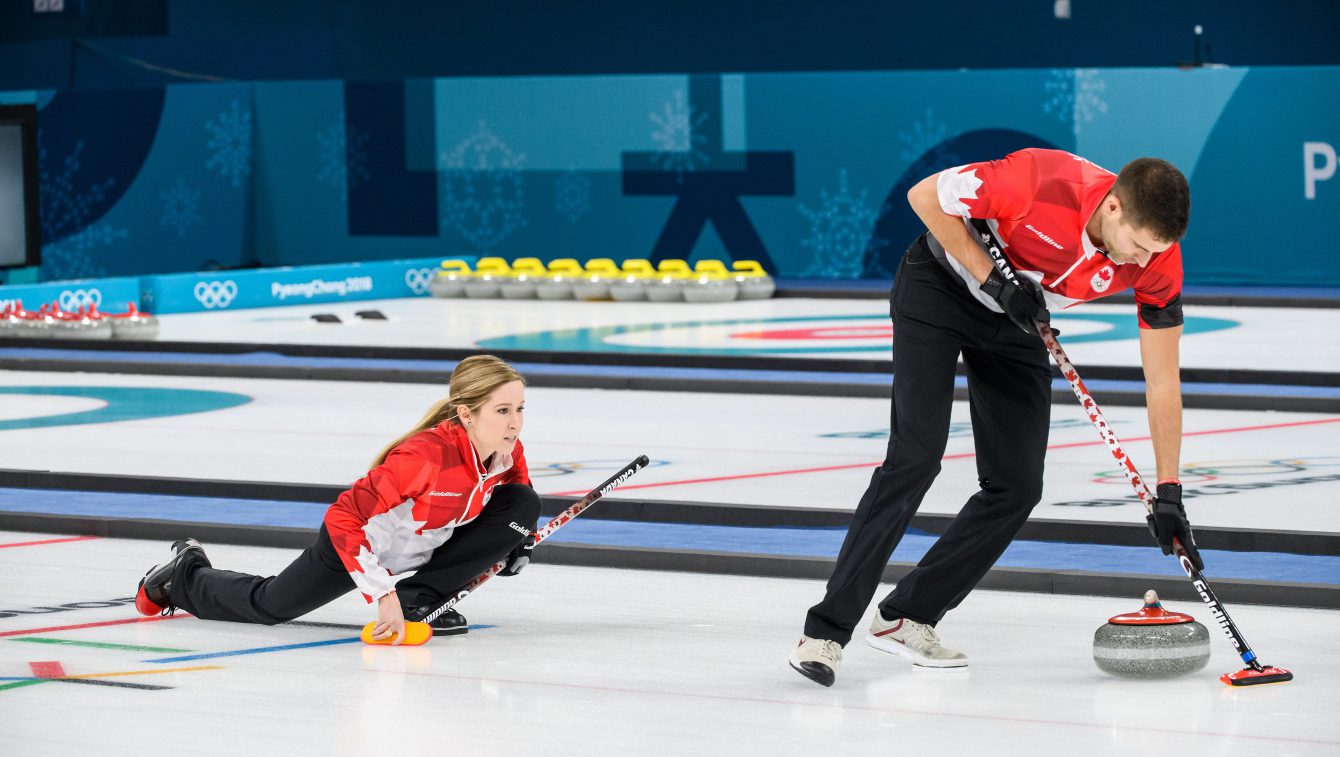
All three tournaments begin with a round robin. The top four based on win-loss record advance to the semifinals, from which the winners play for gold and silver while the losers play for bronze.
Canadian History (pre-Beijing 2022)
Canada has dominated Olympic curling since its return to the Olympic program at Nagano 1998, getting onto the podium in the first five men’s and women’s tournaments.
Both Canadian teams won gold at Sochi 2014. The men’s team included Brad Jacobs (skip), Ryan Fry (third), E.J. Harnden (second), Ryan Harnden (lead) and Caleb Flaxey (fifth/alternate). The women’s team included Jennifer Jones (skip), Kaitlyn Lawes (third), Jill Officer (second), Dawn McEwen (lead) and Kirsten Wall (fifth/alternate).
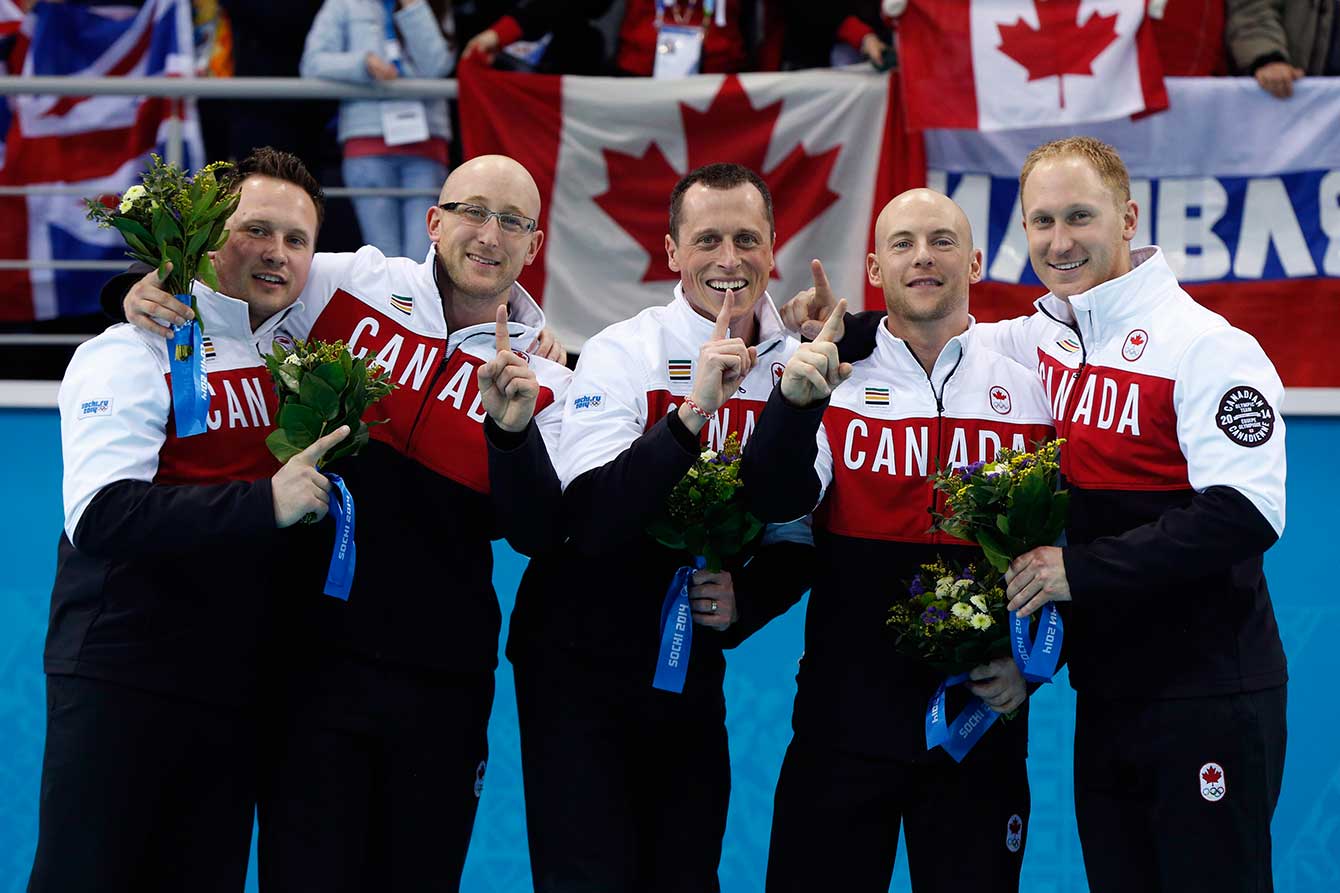
That was the third straight men’s gold won by Canada, following the success of Kevin Martin’s rink (also including John Morris, Marc Kennedy, Ben Hebert and Adam Enright) at Vancouver 2010 and Brad Gushue’s team (also including Russ Howard, Mark Nichols, Jamie Korab and Mike Adam) at Turin 2006.
Martin had previously won silver at Salt Lake City 2002 with a different team, which followed the silver at Nagano 1998 for the team skipped by Mike Harris.
Canada had the first ever Olympic gold medallists in women’s curling. Led by the great skip Sandra Schmirler, her rink also included Jan Betker (third), Joan McCusker (second), Marcia Gudereit (lead) and Atina Ford (fifth/alternate). Cheryl Bernard skipped her team to silver at Vancouver 2010 while Kelley Law and Shannon Kleibrink guided their teams to bronze at Salt Lake City 2002 and Turin 2006.
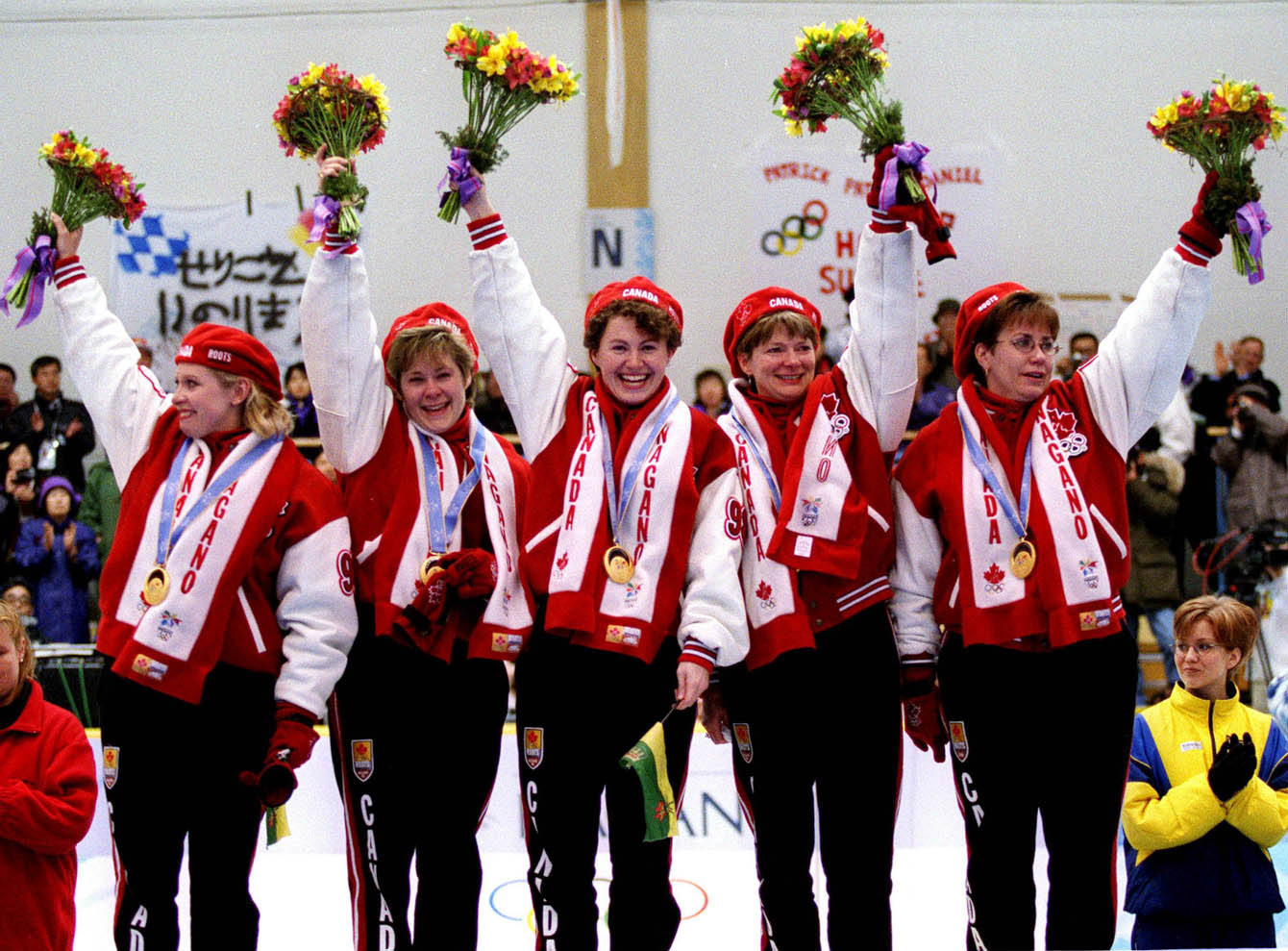
John Morris and Kaitlyn Lawes became the first Canadian curlers to win two career Olympic gold medals when they teamed up to win the inaugural mixed doubles tournament at PyeongChang 2018.

